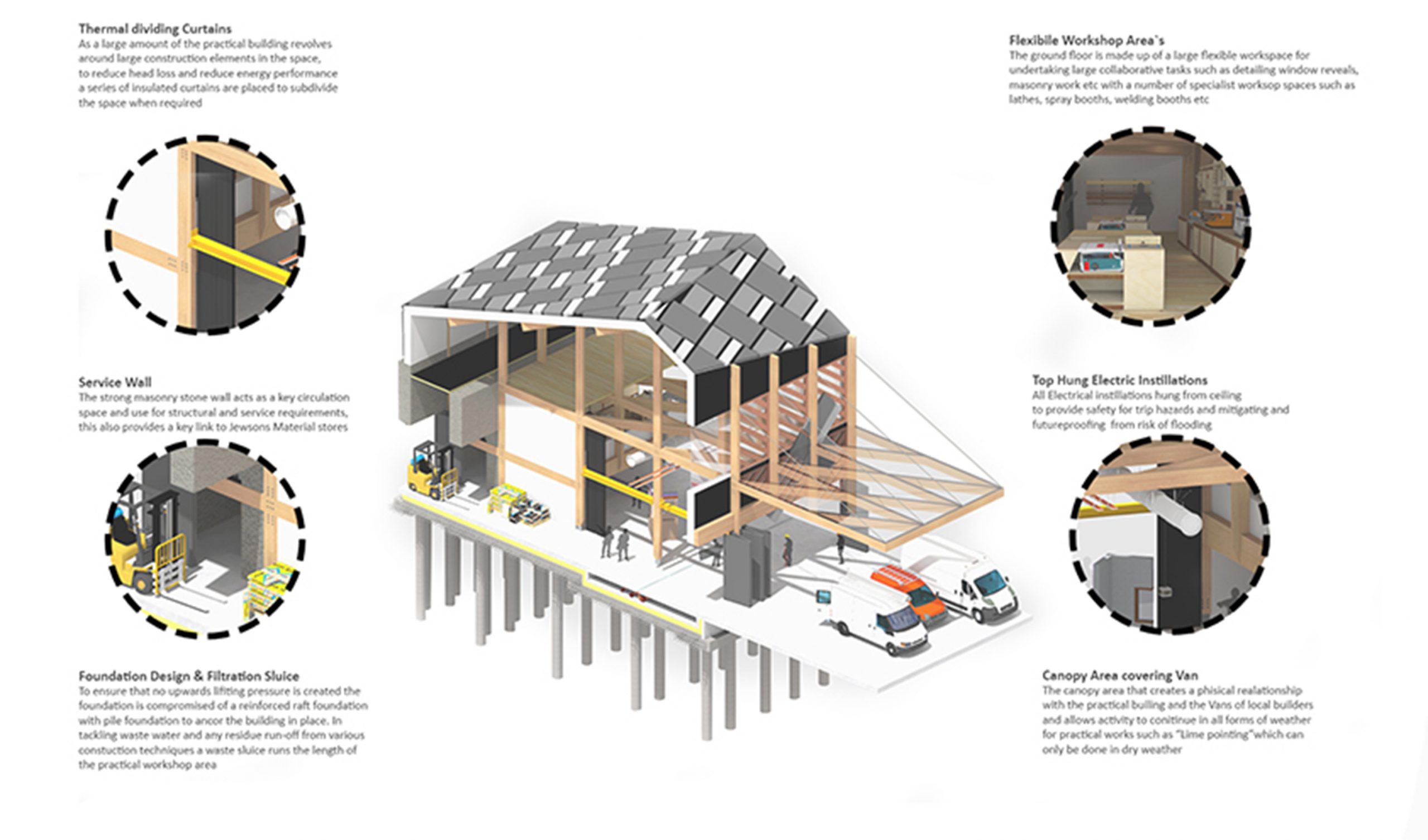“De-Carbonising Exisiting Buildings in Rural Wales” The principle aim of the thesis is…

TUTOR: PROFESSOR PETER SALTER
This unit responds to the Welsh Government announcement that “Wales faces £1 billion climate change bill”
Although Wales has urban conurbations, principally around its southern coastline, much of Wales is made up of isolated rural communities which cannot benefit from an urban contextual approach to climate change. Microsystems of generation and renovation seem a more suitable way forward.
In many of Wales’ Market Towns, there are generations of builders many of which have a limited range of skills. Generally, builders are in short supply, and those that survive develop their skills haphazardly as building technology moves on and building regulations begin to impinge on the builders.
In such circumstances, how is Wales to avoid climate breakdown in 12 years, bearing in mind its building stock of stone, brickwork, blockwork and panelled construction, which hardly meet insulation standards and efficient heat generation and retention. We need to set up microsystems of training and networks of expertise that overcome populist DIY. Where “details for Passive Houses: Renovation” become the bible. Increasing the Permitted Development regulations is not going to change standards of construction. We cannot rely on isolated necessity to inaugurate new building sub-contractors.
This year’s thesis explores existing systems, patterns and densities of service industries and educational facilities that enable a new building industry to upgrade our rural building to meet the requirements of the Intergovernmental panel on climate change.

“De-Carbonising Exisiting Buildings in Rural Wales” The principle aim of the thesis is…
